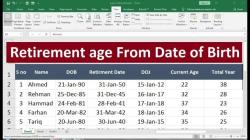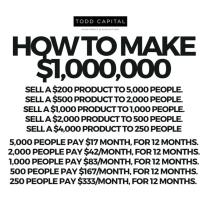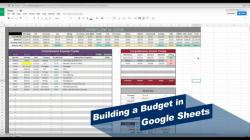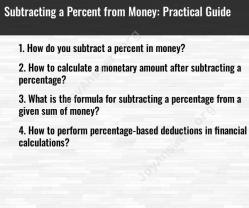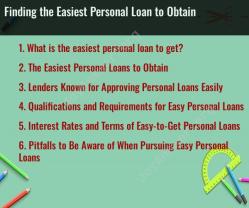Can you get a reverse mortgage with bad credit?
Getting a reverse mortgage with bad credit can be challenging, but it is not impossible. A reverse mortgage is a loan available to homeowners who are typically 62 years of age or older, allowing them to convert a portion of their home equity into cash. Unlike traditional mortgages, borrowers do not make monthly payments on a reverse mortgage. Instead, the loan is repaid when the borrower sells the home, moves out of the home, or passes away.
Here's what you need to know about getting a reverse mortgage with bad credit:
Credit Requirements Vary: Reverse mortgage lenders do consider credit history as part of the eligibility criteria, but the requirements can vary from lender to lender. Some lenders may have stricter credit requirements than others.
FHA-Insured Reverse Mortgages (HECMs): The most common type of reverse mortgage is the Home Equity Conversion Mortgage (HECM), which is insured by the Federal Housing Administration (FHA). While the FHA sets some guidelines for HECM loans, individual lenders may have their own credit score requirements. Some lenders may consider borrowers with lower credit scores, while others may have more stringent criteria.
Financial Assessment: In recent years, the FHA implemented a financial assessment for HECM loans. This assessment evaluates a borrower's credit history, income, and financial obligations to determine their ability to meet ongoing homeownership expenses, such as property taxes and insurance. If your credit history reflects a history of late payments or other financial issues, it could affect the outcome of the financial assessment.
Credit Issues and Mitigating Factors: Lenders may take a holistic approach when considering borrowers with bad credit. They may consider factors such as the reasons behind the bad credit, efforts to improve credit, and other compensating factors. Demonstrating a stable financial situation apart from the credit score may help your case.
Counseling Requirement: Regardless of your credit history, anyone applying for a reverse mortgage is required to attend counseling with a HUD-approved housing counselor. This counseling session provides information on the costs, benefits, and risks associated with reverse mortgages.
Consider Other Options: If you have significant credit issues and are concerned about your ability to qualify for a reverse mortgage, it may be wise to explore other financial options, such as selling your home and downsizing, seeking assistance from family members, or exploring alternative loan products.
It's essential to carefully review the terms and conditions of any reverse mortgage offer and to work with reputable lenders and counselors. Keep in mind that reverse mortgages can have fees, interest charges, and other costs, so it's crucial to fully understand the implications of the loan.
Before pursuing a reverse mortgage, especially with bad credit, it's advisable to consult with a financial advisor or housing counselor who can provide personalized guidance based on your specific financial situation and goals.
Reverse Mortgages and Bad Credit: What You Need to Know
A reverse mortgage is a type of loan that allows homeowners to borrow against the equity in their home without having to make monthly mortgage payments. Instead, the loan is repaid when the homeowner sells the home or moves out permanently.
Reverse mortgages are available to homeowners who are 62 years of age or older and have sufficient equity in their home. While credit history is not the primary factor considered when qualifying for a reverse mortgage, it can still play a role in the loan approval process.
Can You Qualify for a Reverse Mortgage with Poor Credit?
Yes, it is possible to qualify for a reverse mortgage with poor credit. However, lenders may be more likely to approve borrowers with good credit. Additionally, borrowers with poor credit may receive less money from a reverse mortgage loan.
Navigating Reverse Mortgage Options with Less-Than-Ideal Credit
If you have less-than-ideal credit and are considering a reverse mortgage, there are a few things you can do to increase your chances of approval:
- Shop around and compare offers from multiple lenders. Different lenders have different requirements for reverse mortgages. Some lenders may be more willing to work with borrowers with poor credit.
- Be prepared to make a down payment. A down payment can help to improve your chances of approval for a reverse mortgage, especially if you have poor credit.
- Consider a HECM reverse mortgage. HECM reverse mortgages are insured by the Federal Housing Administration (FHA) and have more lenient credit requirements than other types of reverse mortgages.
If you are unsure whether you qualify for a reverse mortgage, it is important to speak with a qualified mortgage professional. They can help you to assess your options and find the best loan for your needs.
Here are some additional tips for navigating reverse mortgage options with less-than-ideal credit:
- Get pre-approved for a reverse mortgage before you start shopping for a home. This will give you an idea of how much money you can borrow and what your monthly payments will be.
- Work with a real estate agent who specializes in reverse mortgages. They can help you to find homes that are eligible for reverse mortgages and negotiate the best price for you.
- Consider a reverse mortgage with a tenure option. This will allow you to continue living in your home even after the loan balance has exceeded the value of the home.
It is important to note that reverse mortgages are not without their risks. Before you decide whether or not to get a reverse mortgage, it is important to weigh the pros and cons carefully. You should also talk to a financial advisor to get personalized advice.


